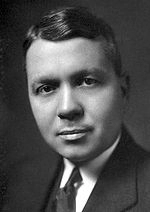How to Pronounce Harold Urey
#50
Most Popular
Boost
Apr 29, 1893 Cholet, Pays de la Loire, France Died on 05 Jan 1981 (aged 87)
American physical chemist
TaurusHarold Urey, Date of Birth, Place of Birth, Family, Facts, Age, Net Worth, Biography and More in FamedBorn.com

American physical chemist
Taurus